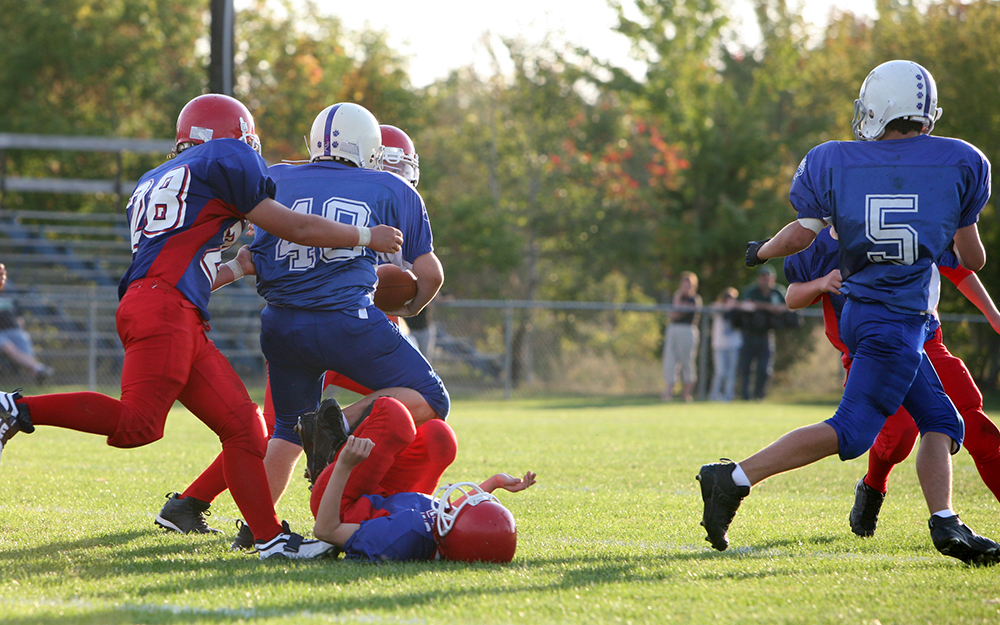How Athletes Can Weather the Flu
Date
January 1, 2025

Date
January 1, 2025
Credits
Medical providers featured in this article

In Brief
{{cta-block}}
Having the flu can derail your workouts and training schedules, even force you to miss a big game. But with precaution and preventive strategies, you’ll weather the season.
What’s the Difference Between the Flu and a Cold?
The influenza virus is a microscopic, infectious organism that replicates itself inside living cells. Flu infection is most prevalent in the colder months because people spend more time indoors during this time of year, making the transmission of the virus easier. Plus, the colder, drier air may affect the mucous membranes, allowing for an easier transfer of the virus.
The flu can lead to severe illness for some people. The youngest and eldest among us are at higher risk, as are people with chronic medical conditions such as asthma and heart disease. Also, complications of the virus, such as pneumonia, contribute to tens of thousands of deaths in the U.S. each year.
The flu can be mistaken for the common cold—also caused by a virus. Symptoms associated with the flu are usually much more severe, including fever, body aches and cough, and the onset of those symptoms is often more sudden than those of a common cold.
{{providers}}
How Can I Avoid the Flu?
One of the best ways for otherwise healthy people to avoid the flu is by getting an annual flu shot. Each year, the influenza virus is different, and the vaccine is based on the prior year’s virus. Because of these shifts in the type and severity of the virus, the effectiveness of the flu shot can change year to year. However, even small decreases in the number of cases can dramatically and positively affect public health. Those who get the vaccine and contract the flu virus usually have far less severe symptoms and are not sick or infectious for as long as those who did not get the flu shot. This translates to less missed time from work or workouts.
Can the Flu Shot Give Me the Flu?
The myth that the flu shot can give you the virus is false. The injected flu vaccine is made up of a killed version of the virus, so it isn’t possible to get the flu from it.
It’s also important to understand that antibiotics won’t work as a treatment for the flu. Antibiotics work well only if a person has a bacterial infection. The flu and most colds are viral infections. There are effective antivirals that can reduce the days and severity of symptoms of the flu. However, they only work if taken within the first two days after you become sick.
Can I Still Get Sick After Taking the Flu Shot?
During cold and flu season, you can get sick by being around other infected people in the doctor’s office, the locker room, the gym or anywhere people congregate. The vaccine can take up to two weeks to be fully effective, so exposure to the virus during that time can lead to symptoms.
Some groups can’t receive the flu shot, but are protected if the rest of us receive the vaccine and don’t spread the virus. Children who are younger than 6 months old should not get the flu shot because they can’t make an adequate immune response to that vaccine. Those who have had a severe, life-threatening allergy response to the shot’s ingredients should not get the flu vaccine. Also, people with a history of Guillain-Barre syndrome or egg allergy should talk to their doctor before getting the flu shot.
What Else Can I Do to Protect Myself?
The flu virus can be found anywhere, such as a doorknob, computer keyboard or a set of dumbbells. Washing your hands with soap and water frequently, before meals or while at the gym, can prevent transmission. Consider not shaking hands or dishing out high-fives during flu season.
Eating healthy foods and getting enough sleep improve the immune system and lessen the chance of transmission if you do encounter the virus.
If you become sick, take a break from your training regimen, especially if you exercise around other people. Your workout partners will thank you for not making them ill, and your immune system will stay focused on battling the illness.





